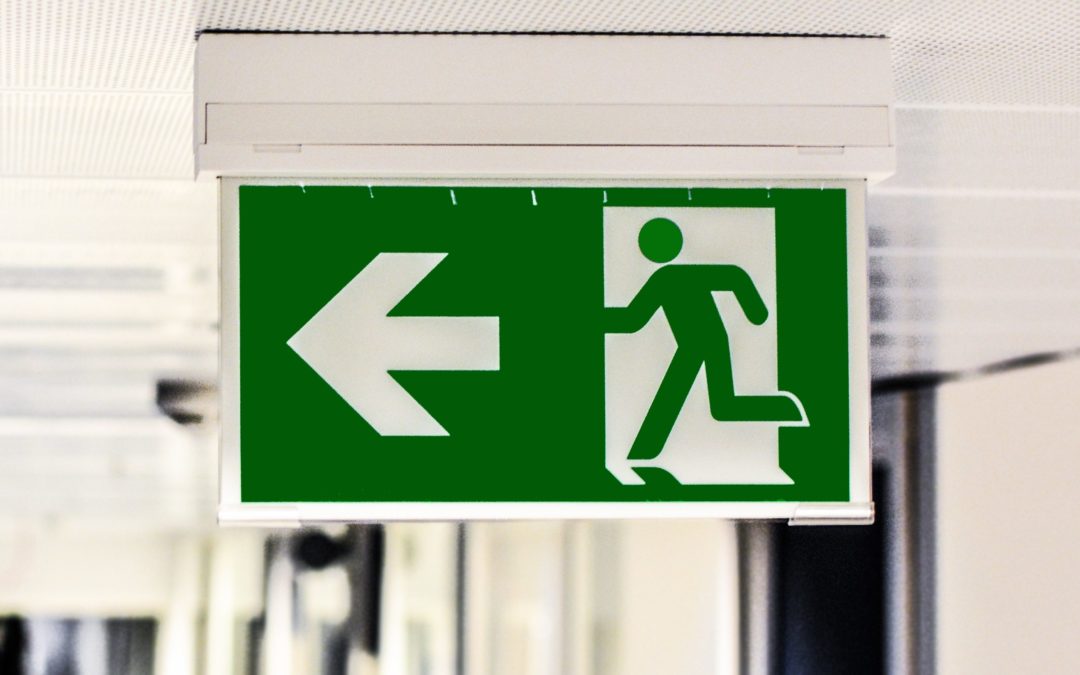Events both large and small always seem to have an overabundance of items that need to be sorted and details that need to be decided.That is one of the reasons you reached out to Coterie Spark in the first place – our team’s deep experience in event planning means that we stress over the details so you can focus on the needs of your business and attendees who have come together at your event.
Too often security and emergency planning for events are not something clients have thought about. Whether the emergency requires you to provide immediate help to an attendee, secure attendees into a safe place or entirely evacuate the venue, your attendees take for granted that if an emergency occurs, you know exactly what to do.
But, do I really need an emergency plan?
Many event planners often reason that the situation won’t happen to them, and ninety-nine percent of the time it does not. It pays to ask if it does, am I prepared? Attendees assume that a plan is in place. As your planner, it is our obligation to make sure that they are correct.
When planners have a general plan, it ensures that in the stress of the moment there is a go-to protocol to deal with attendees and communication. Even more critical is training the appropriate staff on how to implement the plan. In emergencies, noise and voices can become loud and important steps to provide safety can be hard to communicate.
A security plan not only provides an adequate response to a crisis, but it also serves to mitigate the after effects. At the end of the day you want to know that you did everything you could and that an organized process was followed to make sure everyone was safe.
So, what do I actually need to do?
A security plan largely depends on the type of event and the unique requirements of the event.
For some events this could require credentialing attendees with badges and ensuring that only registered guests are allowed in the event, while also planning on how to deal with lost badges. For others, it could include a secure area to store electronic devices for attendees during executive sessions.
Working one-on-one with our clients to determine the unique needs of their event is the best way to determine how extensive the plan needs to be. As event planners we should always be familiar with the emergency protocol of the venue, including fire protocol, how best to contact emergency services, and emergency contact numbers for the venue in case of mechanical malfunction.
Think of Security as an Investment
Having a security and emergency situation plan in and of itself is not costly, but executing them can be. On-the-ground items such as emergency medical services, security guards, badge checkers, metal detectors, and more can increase the cost of producing an event, especially for larger events.
When budgeting it is important think of security costs as you would car insurance or homeowners’insurance. The moment you don’t think it fits in the budget is the moment an emergency will occur and you will find yourself underprepared and unable to say that you did everything you could to make sure you took responsibility for your attendees.
Who often provides security? The location, local services, private services?
There are many ways that security can be hired. Consider outside resources, in house staff or recommended partners from the venue that are familiar with the facility.
Being a firm that plans and executes, but also manages programs, means that security is an integral part of Coterie Spark’s process. Think through your program and details of scenarios that you hope will never happen, and most often do not, but in the off-chance it does, you are prepared. At Coterie Spark, we go the extra mile to ensure that we have combined all venue, client, and Coterie Spark protocols into one detailed process so that our events are handled seamlessly no matter what the situation

